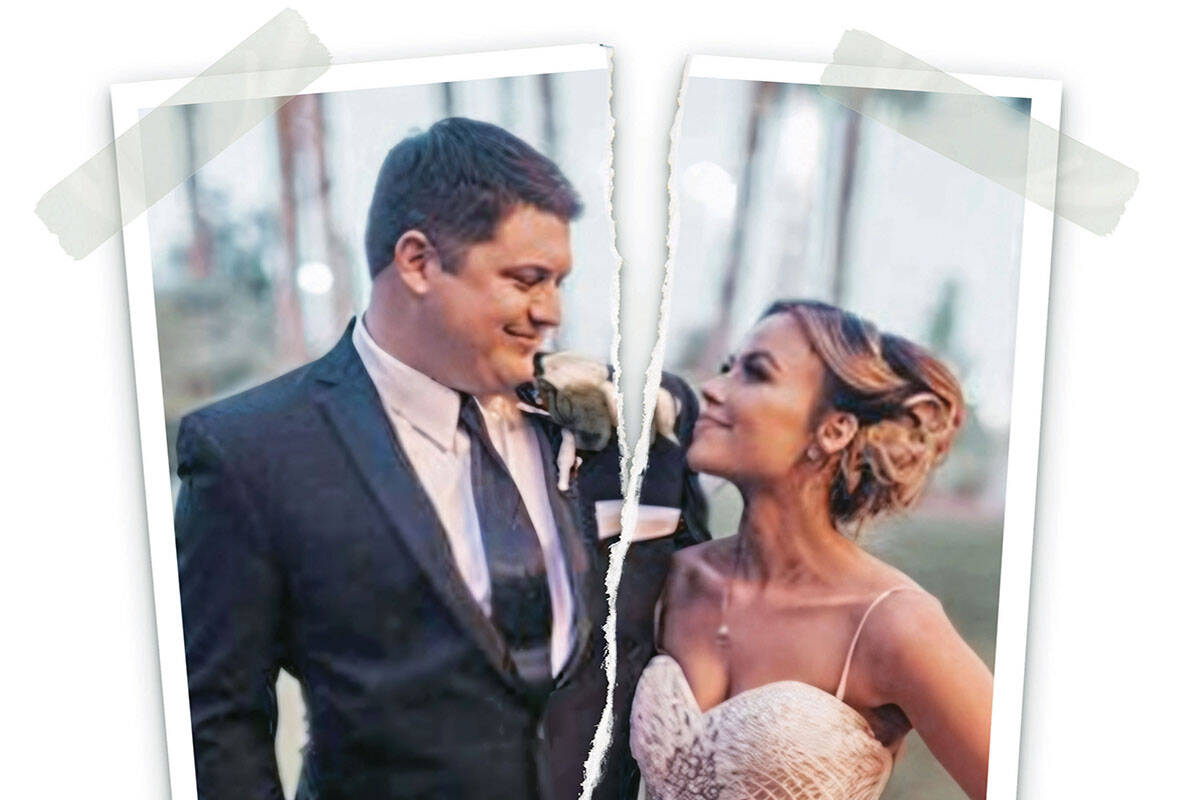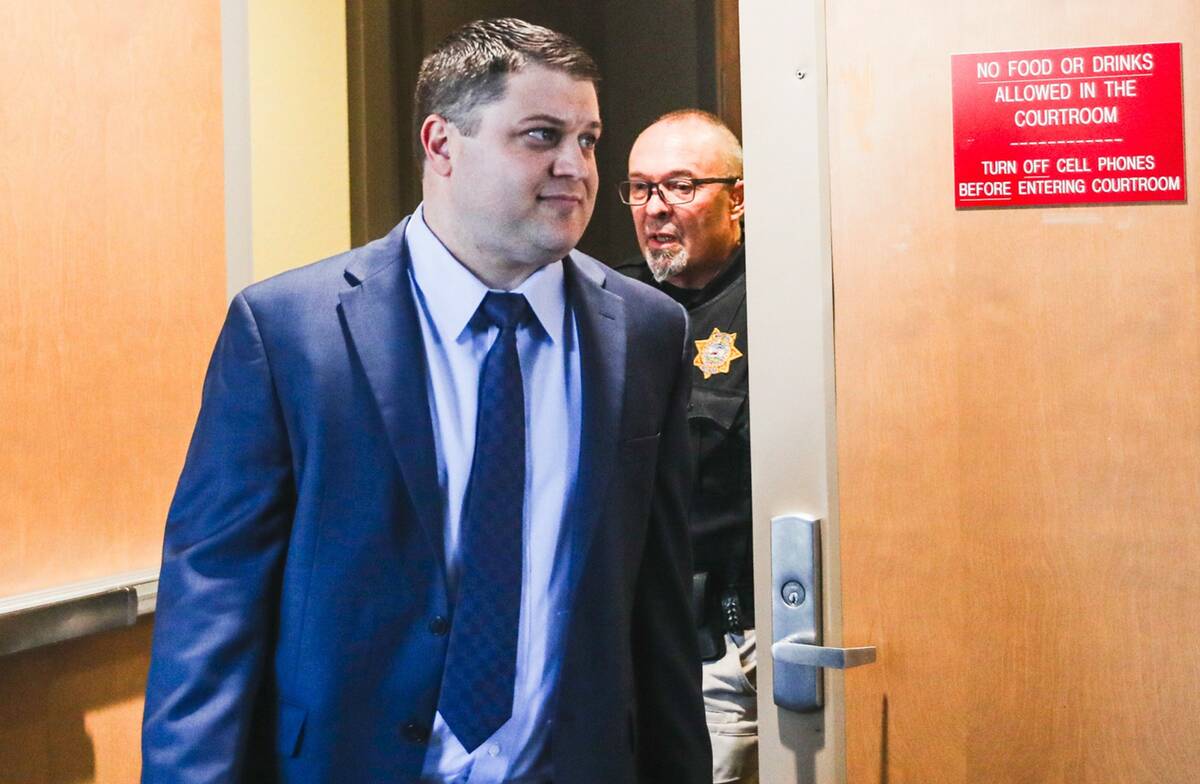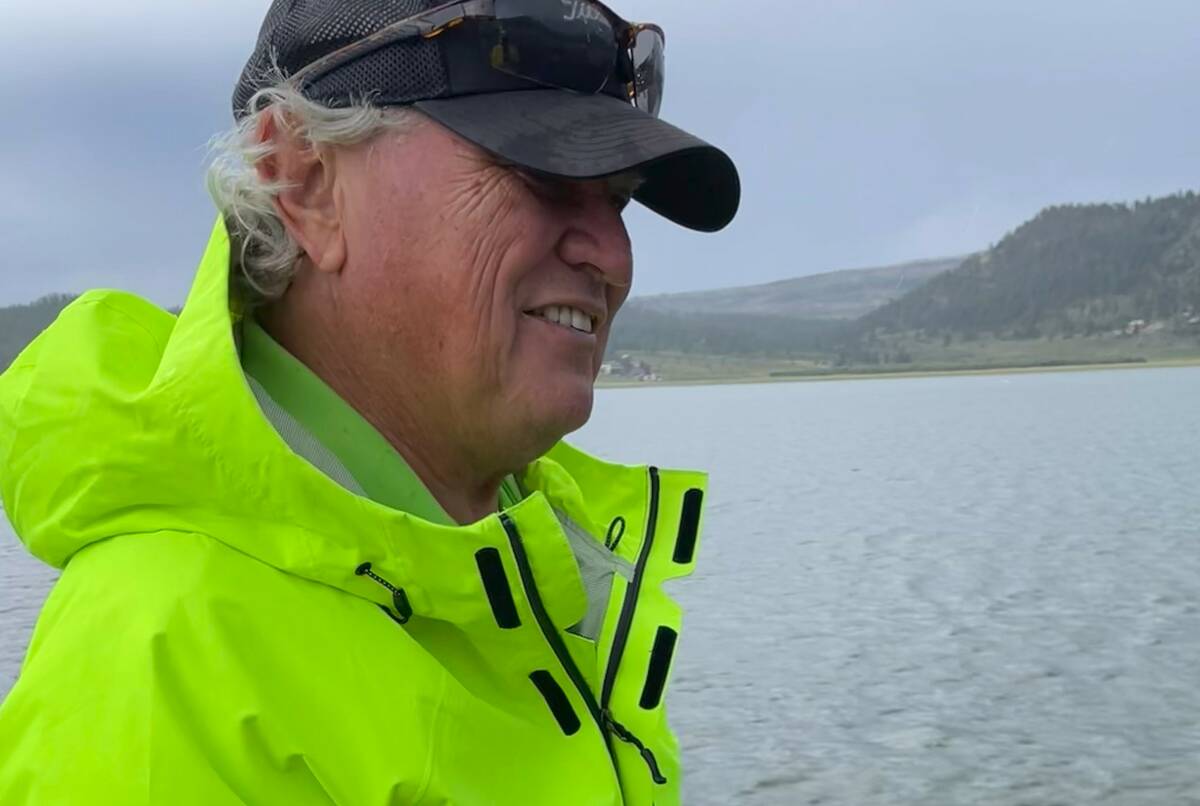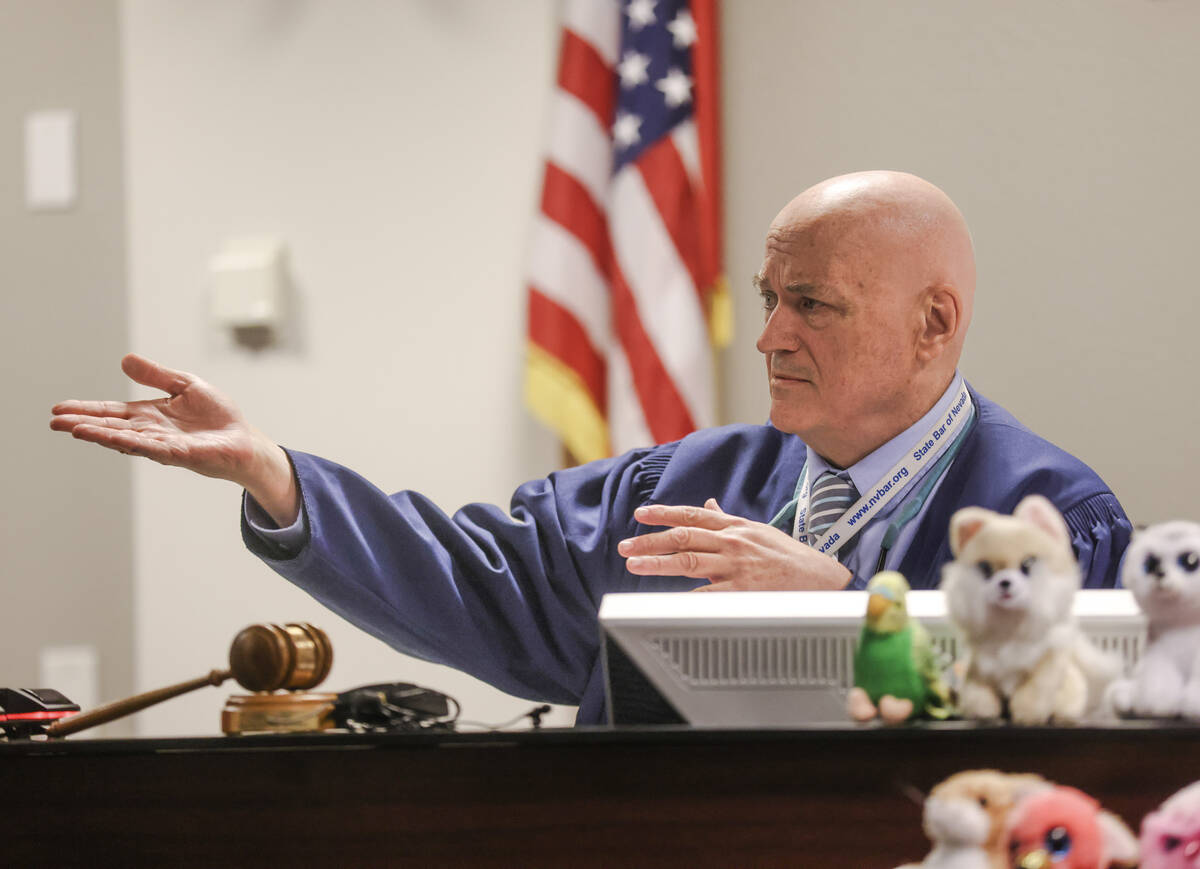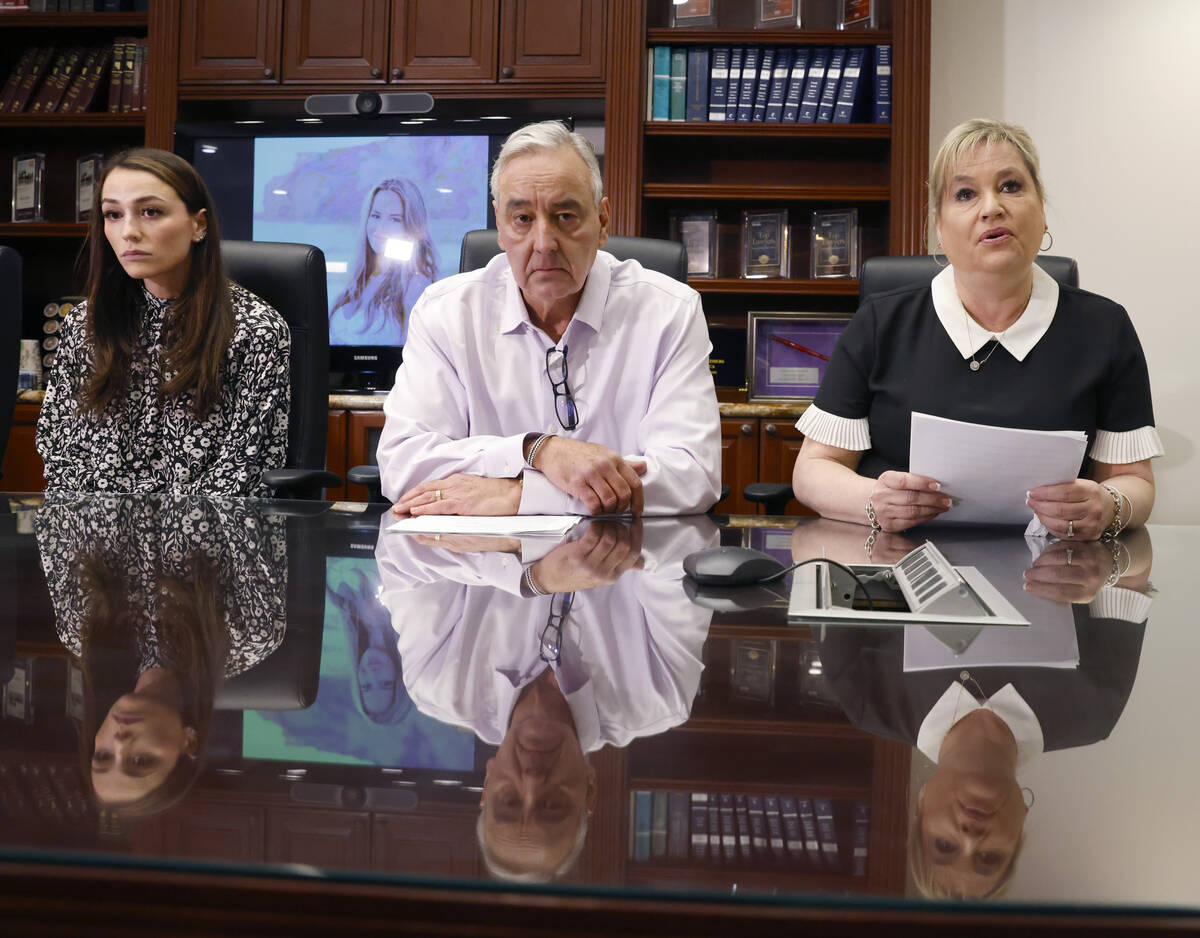‘I’m surprised it doesn’t happen more frequently’: How a custody battle became a fatal shooting
For two years, two warring families filed document after document, stretching out a contentious custody battle over allegations of substance abuse, threatening messages and “scorched earth” litigation.
The fighting continued until a deposition hearing in early April, when attorney Joseph Houston, 77, stood up and shot his former daughter-in-law, 30-year-old Ashley Prince, and her new husband, attorney Dennis Prince, 57, before turning the gun on himself. Joseph Houston had been acting as an attorney for his son, Dylan Houston, throughout the case.
As the case inched on, Ashley Prince’s lawyers and family repeatedly asked for Family Court Judge Bill Henderson to hold Dylan Houston in contempt or sanction him for the messages he sent to his ex-wife.
Court records unsealed by Henderson show a highly contentious case with personal stakes for the attorneys representing their own family members. But attorneys who have practiced family law say the heated nature of the case leading up to the tragic shooting is nothing new.
“The incident with Joe Houston, I’m surprised it hasn’t happened before,” attorney Michancy Cramer told the Review-Journal. “And I’m surprised it doesn’t happen more frequently.”
Alleged ‘red flags’
Ashley Prince, born Ashley Page, grew up in Las Vegas and graduated from Palo Verde High School. Her younger sister, Lexie Page, previously told the Review-Journal that Ashley “wanted the best life” for her children — her 4 and 5-year-olds, and a baby she had with Dennis Prince.
Her parents declined to comment for this article. But during a press conference shortly after the shooting, her parents said Ashley Prince “lived in constant fear” throughout the custody proceedings.
Her mother, Julie Page, said her daughter endured a “slow-moving court battle” that “ultimately failed her.” Julie Page went on to criticize the court proceedings, saying that Dylan Houston subjected his ex-wife to “verbal and mental abuse,” but “never faced any consequences from the court.”
“There were so many red flags that seemed to be glossed over by the court,” Julie Page told reporters.
Dylan Houston’s attorney, Thomas Standish, did not respond to a request for comment. The judge declined to comment for this article through a clerk, who said Henderson was precluded from commenting on ongoing cases — including a continuing legal battle as Ashley Prince’s family fights Dylan Houston for custody of the former couple’s two young children.
Ashley and Dylan Houston’s problems started long before they filed for divorce.
In August 2021, Ashley Prince received a temporary restraining order against her husband, after Dylan Houston “took a bat and started beating things around the house,” her attorney said during a court hearing the following year. The restraining order was later dissolved.
Her attorneys also alleged that Dylan Houston was using cocaine at the time. Later court documents show that when the court ordered a drug test, Dylan Houston tested positive for cocaine, although Joseph Houston argued that the test could have revealed drug use from months prior.
The two filed for a divorce two months after the restraining order, and it was granted in November 2021. But by April 2022, Ashley Prince was back in court asking for a change to their custody agreement, and for the judge to order a psychological evaluation and set a behavioral order for her now ex-husband. The psychological evaluation has yet to be filed.
Court documents from April 2022 show the first instances of inflammatory text messages that have been referenced by Ashley Prince’s parents since her death.
Included in Dylan Houston’s messages are texts like: “I don’t want to see you unless you’re in a casket,” “The kids are better off without you,” and “Move to Oregon and get euthanized.”
John Jones, Ashley Prince’s attorney, said the messages constituted domestic violence.
Recordings from court hearings show that Dylan Houston’s texts were discussed multiple times throughout the case. Henderson ordered the former couple to communicate only on a court-run messaging program. But the messages only continued.
By November 2022, Ashley Prince’s lawyers filed documents asking the judge to hold Dylan Houston in contempt and sanction him through a monetary fine. Ashley Prince’s attorneys claimed in the court documents that Dylan Houston, who himself is also an attorney, threatened his ex-wife in the text messages and violated court orders.
The documents also highlight another frequent argument in the case — Ashley Prince wanted her ex-husband to pay thousands of dollars in attorney fees; she claimed that he had almost no fees because he was represented by his father. (Dylan Houston would later claim in court filings that Ashley Prince was supported by her new husband’s substantial salary.)
“In this case, Dylan has engaged in tactics to increase litigation expenses and needlessly increased the costs of this case by substance abuse, misrepresentations, and blatant order violations,” Ashley Prince’s attorneys wrote in a court document filed in November 2022.
In a court hearing in April 2022, the judge questioned why Dylan Houston sent the messages to his ex-wife.
“It’s appalling,” Henderson said. “It’s appalling from a member of the bar who otherwise is presumably a young man of great intellect, potential and future.”
Yet throughout the rest of the case, Henderson never held Dylan Houston in contempt for alleged violations of court orders.
Stewart Chang, a law professor at UNLV who previously practiced family law with the Asian Pacific American Legal Center of Southern California, said that judges will typically look to other intermediary measures before holding someone in contempt, which opens up the possibility of a litigant being sent to jail.
“The contempt order is kind of like the nuclear option for the judge,” Chang told the Review-Journal.
Cramer, who practiced in Family Court for 10 years before recently moving onto civil litigation, said that she remembers only one incident when a judge held a litigant in contempt during one of her cases. She said that the lack of action from the judge in Ashley Prince and Dylan Houston’s legal proceedings is not an isolated incident.
“This is not a Judge Henderson issue,” Cramer said. “This is a Family Court issue.”
‘It’s out of control’
Cramer said that from her perspective, Family Court has turned into “a tool of abusers,” where judges don’t “have the fortitude to tell people no.” Contentious cases can drag on for years, spurred by attorney-driven litigation.
In Ashley Prince and Dylan Houston’s case, their attorneys frequently raised their voices and spoke over each other and the judge. Cramer said the behavior is common in Family Court.
“Contentious is one word for it — it’s out of control,” she said.
The back and forth between Dylan Houston and his ex-wife continued for years. Ashley eventually married Dennis Prince, becoming his fourth wife, and he signed on as her attorneys’ co-counsel in May 2023. Dylan and Joe Houston criticized the move as a tactic to keep Dennis Prince from being called as a witness.
Dennis Prince then moved to depose Dylan Houston’s mother and filed a subpoena seeking records from Dylan Houston’s ex-girlfriend.
In a February hearing over the subpoena, Henderson acknowledged that Dennis Prince was using a “scorched earth” tactic by requesting so many records from Dylan Houston’s ex-girlfriend.
In January, Ashley Prince filed a motion for a neutral child exchange location, after Dennis Prince claimed Joseph Houston was behaving bizarrely during a drop off, “glaring” at him and his children.
Meanwhile, both sides accused the other of confrontations at the children’s soccer games and school activities.
Attorney Lisa Szyc, who practiced in Family Court for about nine years, said that in her experience, Family Court cases are the most personal, both for clients and attorneys. Hearings spiraling out of control is not uncommon, and she believes Henderson is an example of a judge who has “better courtroom control.”
“Sometimes it almost feels like he who screams the loudest gets the most,” Szyc said.
Cramer and Szyc said that when looking at Ashley Prince and Dylan Houston’s case leading up to the shooting, both had seen more extreme custody battles.
“I’ve seen worse with applications for (temporary restraining orders) that have not been granted,” Szyc said.
Chang said that because Family Court is inherently emotional, it is common for attorneys to go “all out” in their litigation.
“If you have a client that’s paying for your services, and your income is dependent on that client, then yes, you often feel like you have to play the role of the attack dog,” he said.
‘Alice’s rabbit hole’
Following the shooting, Ashley Prince’s parents have continued to fight for custody of her and Dylan Houston’s two young children. In the hours after Ashley Prince was killed, her attorneys filed a motion for her sister to obtain emergency custody.
In the motions, Ashley Prince’s lawyers alleged that Dylan Houston had prior knowledge of the shooting, an allegation that Dylan Houston claimed in his own filing was “insulting and quite speculative.”
The Metropolitan Police Department has been investigating the shooting. Clark County Sheriff Kevin McMahill told the Review-Journal on Wednesday that although the investigation is ongoing, there is no evidence that Dylan Houston knew about the shooting beforehand or had any involvement in his father’s decisions.
“I will give the caveat that we are not through with all of the review of the evidence,” McMahill said.
During a hearing in late April, Henderson allowed Lexie Page to continue her custody over the children, but implemented supervised visits with Dylan Houston, provided he gave up his guns to Las Vegas police.
Henderson also said in the hearing that he regretted approving previous orders to extend the case.
On Tuesday, Family Court Judge Dawn Throne approved a petition from Ashley Prince’s father to appoint him as a guardian over the young children’s estate. Shortly after filing the petition in April, the Pages also filed a two-page, bare bones peremptory challenge against Henderson, to prevent him overseeing the guardianship case.
There are few concrete answers attorneys can point to when asked how to improve Clark County’s Family Court system. Szyc said those conversations lead to large-scale budgetary and political implications.
“And now we’ve jumped down Alice’s rabbit hole, and no one is really prepared to have any of those really tough, uncomfortable conversations,” she said.
Both Szyc and Cramer pointed to Nevada’s policy of electing judges. In all courts, that means the attorneys appearing in front of judges are also donating to their campaigns. But Family Court especially has little public oversight, and litigants with little money lack the funds for expensive attorneys or further legal action.
Some are hesitant to open up Family Court to media attention and public scrutiny, and although a recent decision from the Nevada Supreme Court deemed that Family Court cases are presumed open to the public, that case is up for review. But Cramer said she believes public attention is one of the few ways to improve the system.
“I think without the media scrutiny, you’re not going to hold any of these people accountable,” she said.
Contact Katelyn Newberg at knewberg@reviewjournal.com. Review-Journal staff writer Brett Clarkson contributed to this report.



